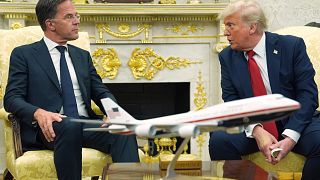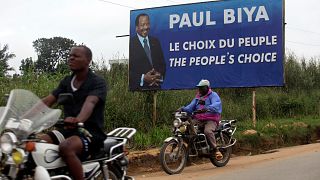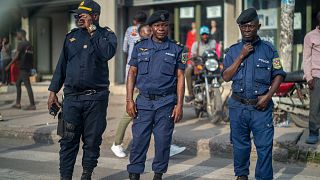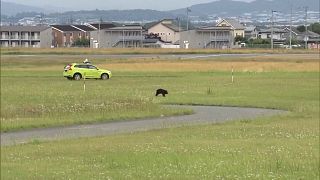Japan
Bells rang out Nagasaki Peace Park at 11h02 on Friday, the exact time the city was hit by an atomic bomb in the closing days of World War II.
As Japan marks the 79th anniversary of the bombing of the city by the United States, survivors and residents prayed for the some 200,000 people who were killed.
The dropping of the bombs on Nagasaki and the city of Hiroshima three days earlier, still evoke strong feelings in the country.
More than 2,000 people, including representatives from 100 countries, attended Friday's ceremony.
But it was somewhat eclipsed by the mayor’s refusal to invite Israel, which resulted in both the United States and British ambassador’s staying away.
The ambassadors of Germany, France, and several other countries were also not at the event, with lower-level diplomatic representatives in attendance instead.
They said that as Russia and Belarus were the only other countries that were not invited, to exclude Israel was misleading.
Instead, the ambassadors of the United States, the United Kingdom, and Israel attended a ceremony held at a Buddhist temple in Tokyo in honour of the Nagasaki atomic bombing victims.
In his peace declaration, Mayor Shiro Suzuki called for leaders of the nuclear weapons states, and those under their umbrella, to shift their policy towards abolishing nuclear weapons.
He said with uncertainty over the continuing Russian invasion of Ukraine and the accelerating conflict in the Middle East, the world was facing “a critical situation" in which restraint may be lost.
Suzuki urged leaders to visit cities like Nagasaki and Hiroshima to learn first-hand stories from survivors about their pain, while making diplomatic efforts towards peace rather than arms expansion.
The memorial took place just Washington reaffirmed its commitment to “extended deterrence", which includes atomic weapons, to protect Japan with the US nuclear umbrella.
Japan is the only country in the world to have suffered atomic bomb attacks.
The bomb dropped on Nagasaki on 9 August 1945 killed 70,000, three days after the first bombing on Hiroshima killed 140,000 and nearly destroyed the city.
Japan surrendered on 15 August ending World War II.













00:55
The Democratic Republic of Congo celebrates the centenary of Patrice Lumumba's birth
00:51
Liberia's former president William Tolbert symbolically reburied, 45 years after his murder
01:49
Kenyans pay tribute to revered author Ngũgĩ wa Thiong'o
01:09
Uruguay bids farewell to beloved former president José "Pepe" Mujica
00:58
Foreign leaders arrive in Russia for Victory Day parade
00:35
WWII’s All Black Women’s Unit finally Recognised